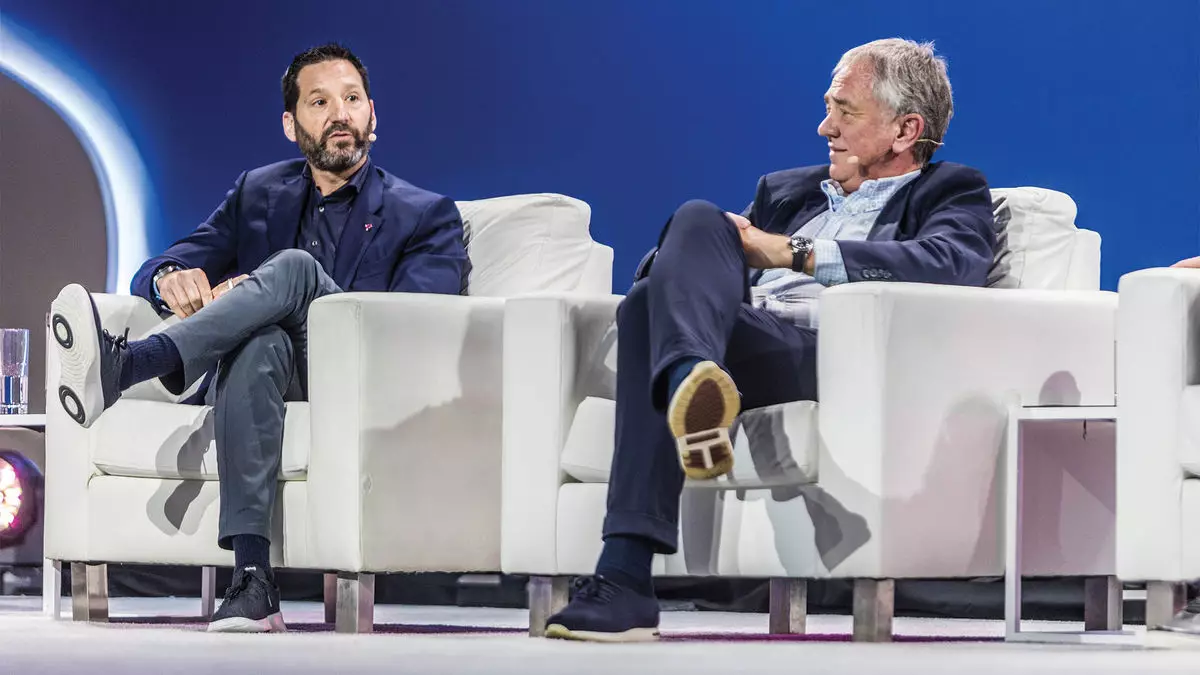As the cruise industry congregated at the Seatrade Cruise Global conference in Miami Beach, a palpable blend of caution and hope filled the air. Executives gathered not just to showcase their latest offerings but to discuss the real threat posed by the current economic climate, influenced largely by stock market fluctuations and rising consumer uncertainty. Although there is an underlying current of concern, key industry leaders remain optimistic, insisting that the resilience of cruising will ultimately prevail.
Harry Sommer, the CEO of Norwegian Cruise Line Holdings, articulated a sentiment shared by many when he stated that his confidence in long-term strategies remains unchanged, despite recent stock dips. This perspective illustrates a significant aspect of business leadership: maintaining a steady course even when external forces threaten to disrupt established norms. Sommer’s assertion that things were improving dramatically reflects a broader belief within the industry that passengers will eventually adjust their perspectives as financial turbulence stabilizes.
Understanding Consumer Behavior Through Economic Lenses
Josh Weinstein, the CEO of Carnival Corp., added a layer of complexity to the conversation by highlighting the consumer hesitation that tends to accompany financial instability. His observation that consumers are trying to decipher the impact of market volatility not only reflects the immediate concerns of vacationers but also sheds light on the human psyche during economic downturns. People naturally desire security and will approach big-ticket decisions like cruising with careful calculation. This cautious approach can manifest in consumers wanting to engage in thorough research before committing, delaying their decisions rather than outright cancellations.
The insights from Ken Muskat, president at Scenic Group USA, echo this sentiment of hesitance mixed with contemplation. He paints a picture of individuals engaged in self-reflection, weighing the merits of spending on experiences like cruising against the backdrop of financial worry. This is not simply a retreat into uncertainty; rather, it reflects a more profound deliberation about what truly matters in life.
Emphasizing Value in Challenging Times
In spite of these obstacles, executives are buoyed by a belief that the intrinsic value of cruising will resonate with consumers. Muskat highlights a key truth: the fundamental human desire for memorable experiences often outweighs the allure of material possessions, especially during uncertain financial periods. This prioritization of experiential spending over trivial purchases distinguishes the resilience of the cruise industry as it navigates these turbulent waters.
John Waggoner of Victory Cruise Lines encapsulates a hopeful narrative, describing how consumers often turn to leisure as a means of coping with economic strain. The decision to set sail despite market losses represents an understanding that life continues, and enjoyment amidst uncertainty can be a valuable antidote. The idea that people might indulge in travel even when financial news is grim speaks to an optimistic view of human nature.
Moreover, these conversations highlight a critical aspect of the cruise industry’s sales approach: the assertion of value. Pierfrancesco Vago, executive chairman of MSC, reinforces this notion by emphasizing that cruising offers an exceptional price-to-experience ratio, thus making it an appealing option even when budgets tighten. This ability to deliver value is more important than ever, particularly when travelers scrutinize every expenditure.
Strategizing in Political and Economic Turbulence
On the policy front, the challenges posed by shifting political landscapes add another layer of complexity for cruise companies. Charles “Bud” Darr, president of the Cruise Lines International Association (CLIA), acknowledges the unpredictability of governmental decisions. While the implications of such shifts may be daunting, Darr’s perspective of patience and adaptability emphasizes an important truth: the industry has weathered storms before and can do so again. His remarks point to the potential for strategic messaging and engagement with policymakers to cultivate a conducive environment for growth and stability.
As executives maneuver through the uncertainty of market volatility and regulatory changes, a pattern of resilience emerges. Historical precedents suggest that past disruptions in consumer behavior have often been ephemeral, as familiarity tends to breed comfort in spending habits. The cruise industry, with its inherent value proposition, is well-equipped to rebound and thrive as consumers forge their paths back to travel after reconciling their immediate concerns.
Together, these elements weave a hopeful yet realistic narrative for the cruise industry as it grapples with economic challenges. The emphasis on adaptability, value, and a richer understanding of consumer behavior serves not only as a coping mechanism but also as a roadmap for the future of leisure travel in an ever-changing world.

